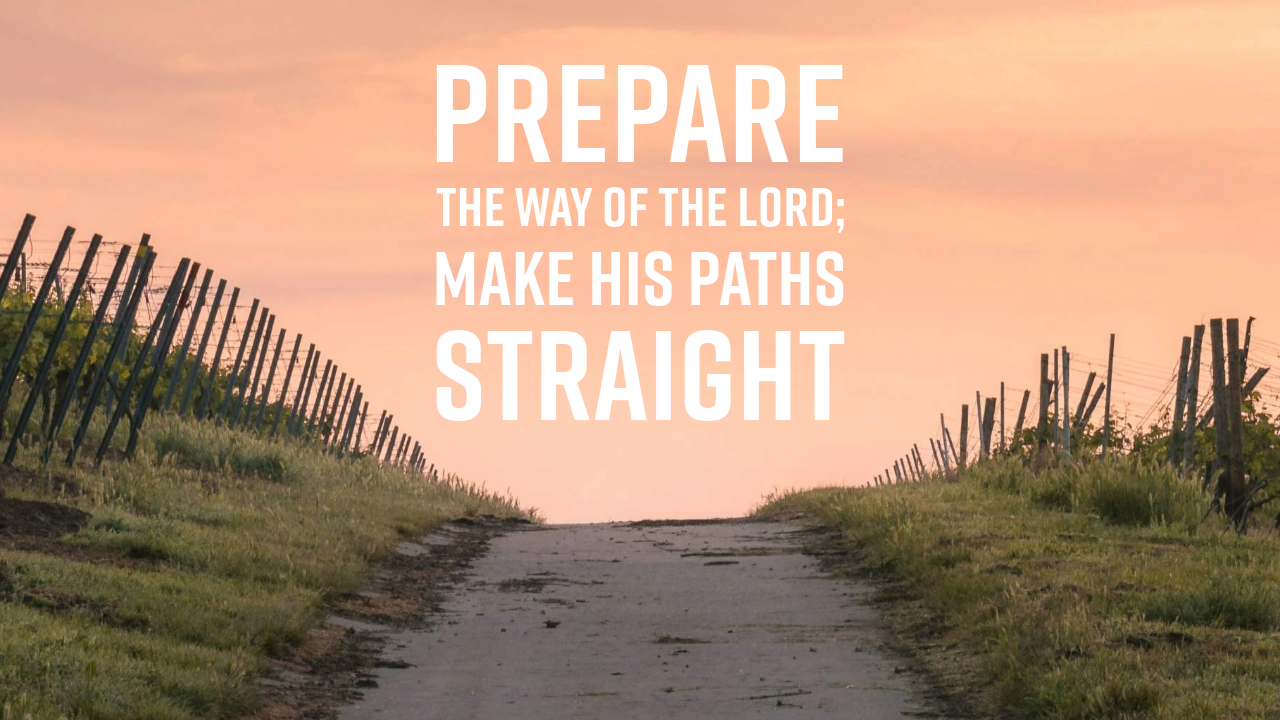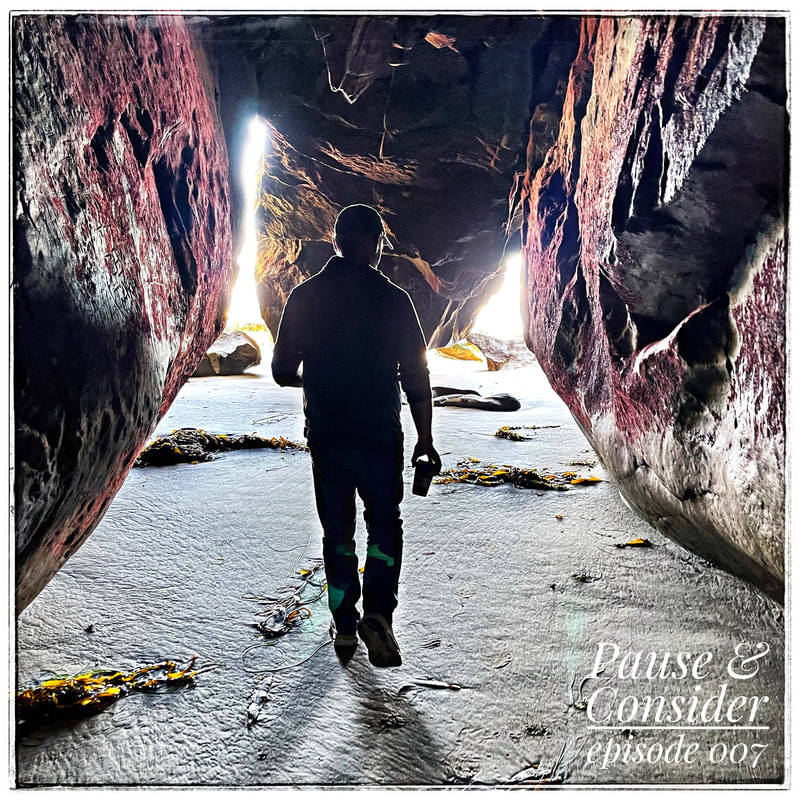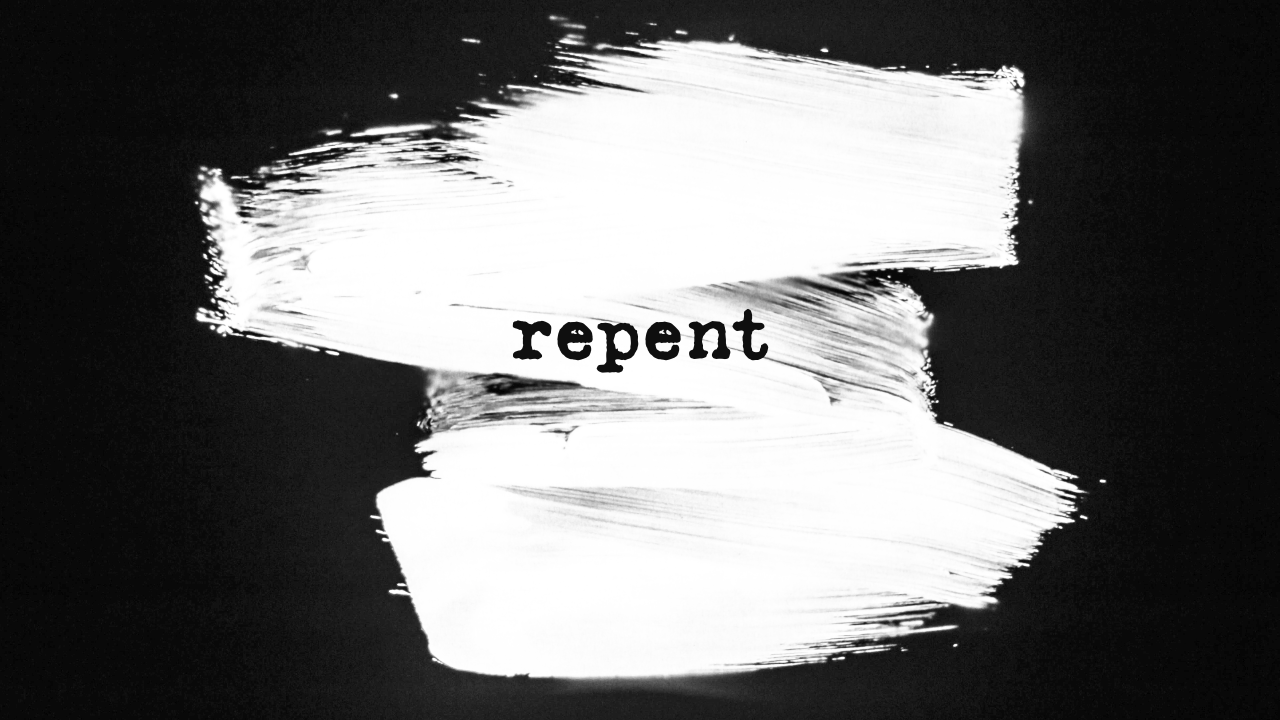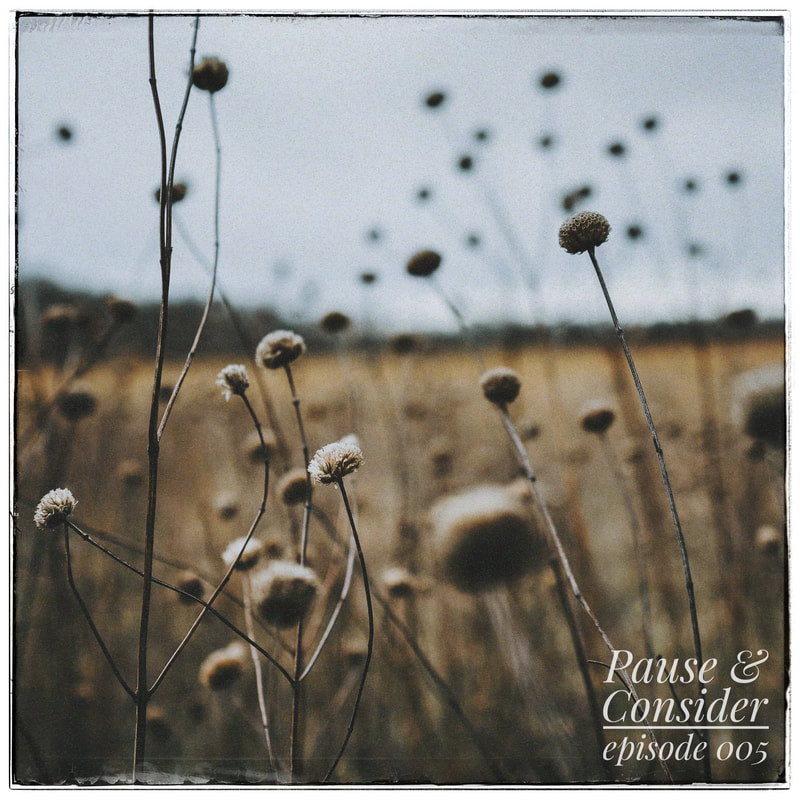Read the word.
Teach the word.
Preach the word.
- 1 Timothy 4:13
|
John had a very unique call on his life. In order to fulfill that call, he needed to live a unique life. His entire life was preparation to be the preparation for the Messiah. To effectively prepare the way, he needed to be pure.
More than any man had ever before, John pursued purity. He pursued God in the solitude of the wilderness, surviving on wild honey and locusts. Thirty years of purity and prayer, spending time with God thinking of nothing else—until one day, the Lord told him to speak: “Repent, for the kingdom of heaven is at hand!” The sound of that message resounded in the hearts of thousands from the area who came to him in the desert to confess their sins and be baptized, desperately wondering what would happen next. John told them what to expect: the Messiah is approaching. He would baptize also, but not by submerging in water. He would submerge you, saturate you, and transform you in and by the Holy Spirit. His ministry would be the most important. Are you ready? Is your heart ready? He will be here any second. Repent—change your mind about your sin and let it go. Get your heart ready to receive what He is going to give. He is coming!
In Matthew 3, two of the most influential men and most influential ministers in human history came to a crossroads. John’s was the greatest man to be born up to that point—and his ministry was coming to an end. Jesus was the greatest Man to ever be born—and His earthly ministry was just starting.
In order to understand all that was happening, we have to go back to a time before Jesus and John were born—to the ancient prophecies that foretold their arrival. This past Sunday, we considered the backstory of John the Baptist—the real history of this real person—so that we might appreciate the scripture that we will be studying in weeks to come. Repentance isn’t something you must do before you can come to God. Repentance is what coming to God looks like. Repenting of sin is turning from sin and turning to God. Turning to God means you are turning from sin.
Think of it this way—if I say I’m driving today to Duluth, I may not also say that I’m leaving St. Cloud and driving to Duluth. But the only way I can drive to Duluth is to leave St. Cloud. Similarly, the only way I can turn to the Lord is to turn away from sin. This is repentance. This is what leaving sin and coming to God looks like. Does that mean that we will never sin again or that we won’t struggle with it? No. But it does mean that we never again desire to give our loyalty, time, attention, or devotion to sin. We now want to give God all of our loyalty, time, attention, and devotion. He will not leave us helpless in our battle with sin—quite the contrary. He has sent His Holy Spirit to help us by baptizing and burning away sin. The pain of holding on to sin is so much more than the pain of God’s help to release us from that sin. God’s holy fire burns away the sin in our hearts so that the awful impurities rise to the surface to be removed. Then God can see His reflection in a heart purely and wholly His.
In Matthew 3, we read about one man in the wilderness with one singular purpose—to prepare the way of The Lord.
His name was John, and at first glance, he might seem like an odd man. After all, he wore camel’s hair and ate honey and locust. But he had an important message to fulfill his purpose. What was his message to prepare us for The King of The Kingdom that was at hand? What was the message that would prepare us to receive Jesus? “Repent for the kingdom of heaven is at hand!” This past Sunday, we considered John the Baptist—the man God called to prepare the way for The Messiah in our study of Matthew 3:1-12. What does it mean to repent? Is it to feel sorry for your sin? Or to change your mind about sin? You could do both—and still not truly repent of your sin.
If you only feel sorry for your sin (or just sorry that you got caught in sin), and even acknowledge that it is sin, you cannot just declare repentance and then continue in that sin. True repentance is not merely a simple statement, a feeling sorry, or an acknowlement of wrong. It includes those things, but it is also turning away from your sin—the complete ceasing of that sin, renouncing of that sin, and having a humble hatred that sin. Repentance is not something that only happens at the moment of conversion. As Jesus gently and persistently reveals more and more of what He wants to remove from our lives, we respond humbly in genuine repentance. When we do, He replaces that sin with new and wonderful life-giving holy habits. This hopefully happens again and again as we follow Jesus and become more aware of sin in our lives.
After speaking to His people through the prophet Malachi, God was silent for 400 years. The last thing He told them was that He would send a man who would help them prepare for the coming Messiah by turning their hearts to the things of the Lord.
That man was John the Baptist—the last of the Old Covenant prophets, even though his life and ministry is recorded in the New Testament. John had a word from the Lord, the first word spoken by God to His people in 400 years. What was that first word after centuries of silence? Repent! But what does repent mean? And why is repentance important to the Lord? We considered these questions as we studied the first two verses of Matthew 3. The town of Nazareth is where Jesus grew up. It was an unimportant country town with a reputation for nothing good. ‘Netzer’ is the Hebrew word that Nazareth comes from. It is a term of contempt, meaning ‘a sprout in the middle of death’. Netzer-eth. Jesus was called a Netzer-ene, dismissed as just another insignificant life surrounded by nothingness—an insignificant life surrounded by death. And yet, Jesus would be, was, and always will be, the giver of life. Jesus rules, reigns, and saves to the uttermost by the power of an indestructible life.
We see this concept in Isaiah 6, when God asks, “Whom shall I send? Who will go for us?” Isaiah says, “Here am I! Send me!” Then God describes what Isaiah’s ministry will look like: “You are going to go to people who have eyes but refuse to see ears but refuse to hear hearts that refuse to repent that they might turn to Me and be healed.” At this point, Isaiah asks an honest question: “How long?” God tells him the length of his ministry—until there is so much death and destruction due to sin it will be like an oak tree that has been cut down and is now a decaying stump. But, God tells Isaiah, in the middle of that stump, surrounded by death, will be My holy seed, My sprout—My Netzer, My Son. This describes the time surrounding the life of Jesus—death and destruction. Israel was no longer sovereign. Cut down, they were ruled and reigned by Rome as a consequence for their sin. They were just a stump, reeling from the rot caused by Herod. And yet this little life persisted. This little life surrounded by death was The Author of Life, who would one day lay down his life for the worst of sinners. Whether you are a vile and violent sinner like Herod or a religious sinner like Saul, who would be Paul, Jesus came to save you. All you need do is look to Him and be healed! |
From Pastor Dom...When I first gave my life to Jesus, there were friends in my life who helped me to grow in my understanding of God, through His word, and for those friends Archives
July 2024
Categories
All
|
Strengthened by grace is the Bible Teaching ministry of Pastor Dominic Dinger.©2022 - All rights reserved.
|








 RSS Feed
RSS Feed